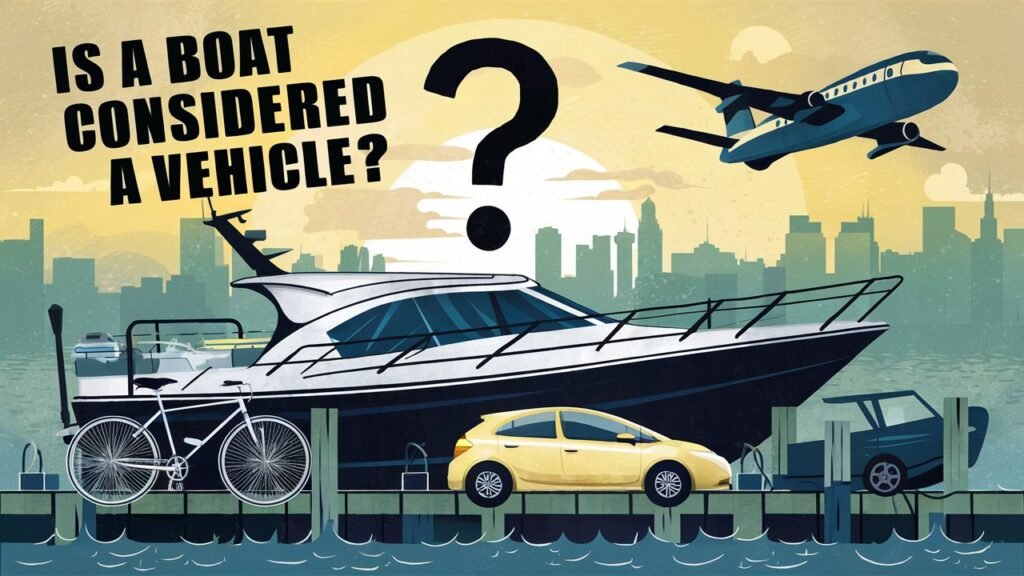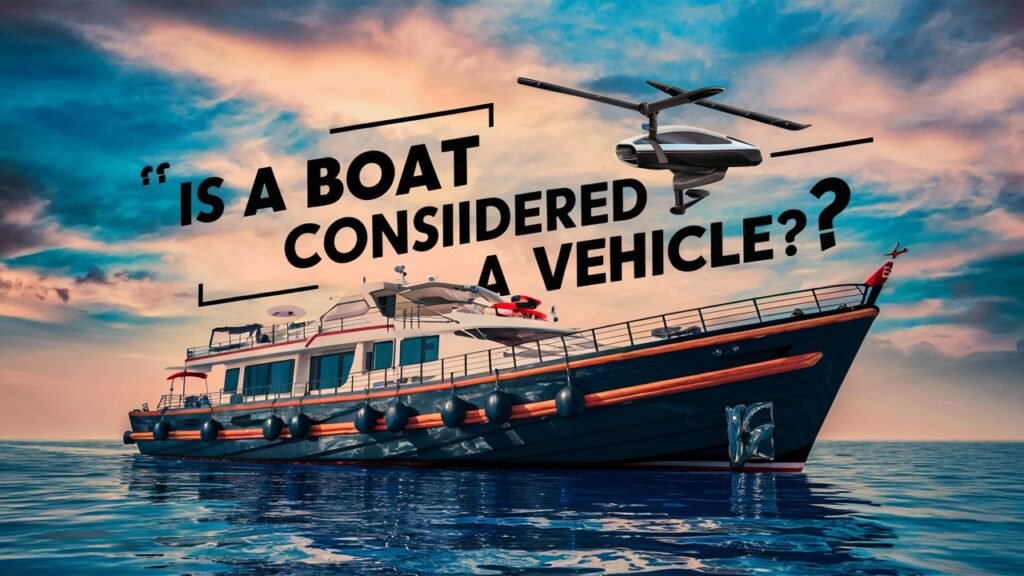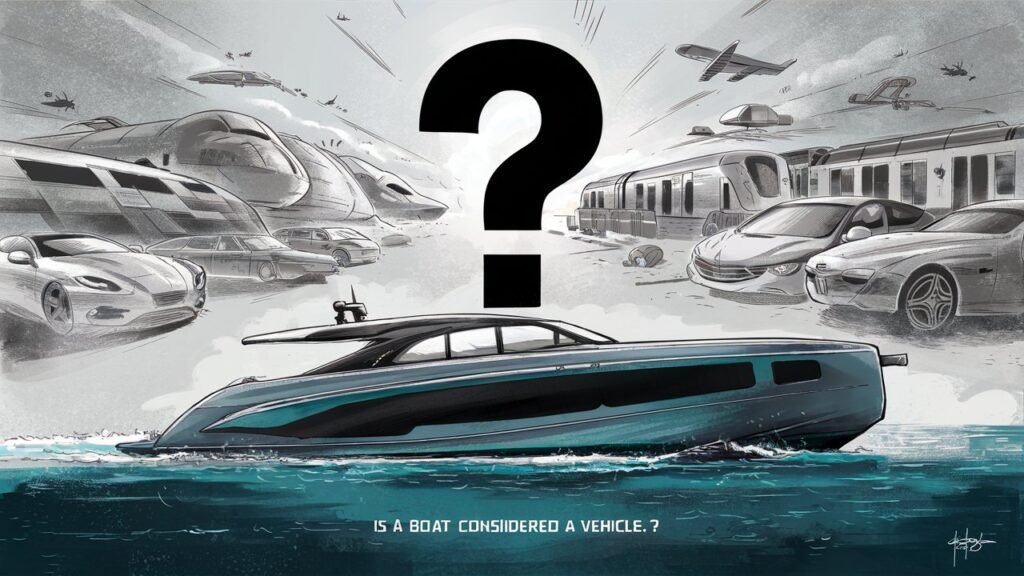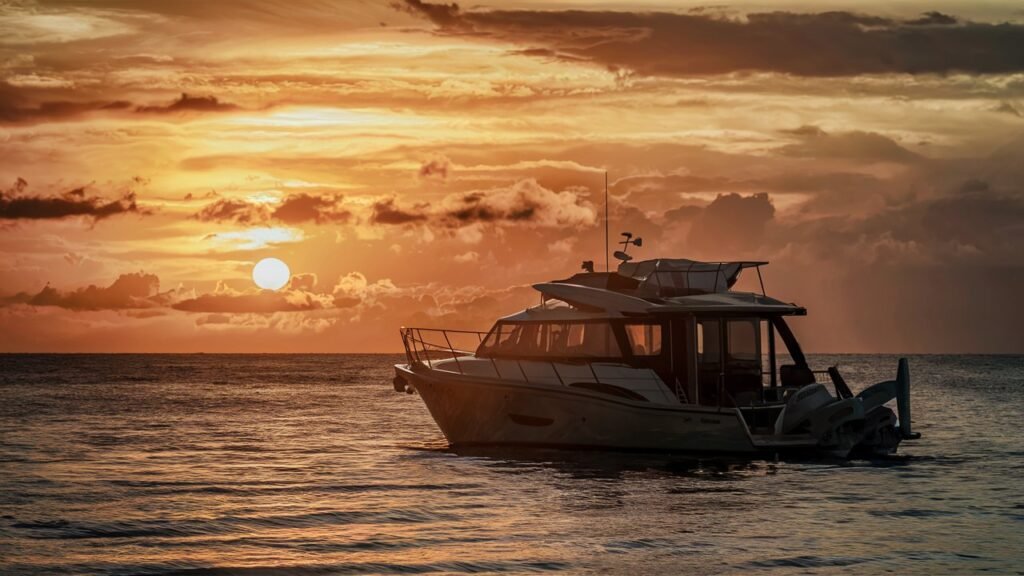Is a Boat Considered a Vehicle?
A boat is considered a vehicle designed primarily for the transport of persons or property on water.
A boat is not typically used on land, but it can still be described as a mode of transportation.
Like motorcycle or bicycle are called vehicles, a boat is built to move itself in water using an electric motor or combustion engine.
Snowmobiles and tractors are also considered all-terrain vehicles even though sometimes they do not touch the ground.
Department of transportation requires boats to be registered just like any commercial motor vehicle used for transportation or people and goods for commercial purposes in many cases.
Some boats, such as motor homes or those with temporary living quarters may also be considered vehicles for the purpose of vehicle registration and gross vehicle weight rating.
Towed by another vehicle such as a car or truck, a boat in transit still remains a vessel.
There are many types and sizes of boats from skiing ships to sailboats that help transporting people across water bodies.
In conclusion, yes indeed; a boat is definitely considered as being a vehicle.
What Defines a Boat?

A boat is typically defined as a watercraft that is designed and used for the transportation of people or goods over bodies of water.
Unlike a moped or a motorized vehicle designed primarily for land transportation, a boat is self-propelled by either human power or an internal combustion engine.
Boats can vary greatly in size, from a small kayak to a large yacht capable of reaching high speeds in miles per hour.
In comparison to a park trailer or a mobile home, a boat is used exclusively on water and typically has three wheels in contact with the surface.
While a boat may share some similarities with an ATV or a golf cart in terms of motive power, it is specifically intended for use on water rather than land.
Watercraft vs. Motor Vehicle

Watercraft vs. Motor Vehicle
Watercraft and motor vehicles serve different purposes when it comes to transportation.
Motor vehicles are primarily used for the transportation of people or property on public roads.
They come in various forms such as cars, trucks, ATVs, and even manufactured homes.
These vehicles are designed to be drawn by a motor vehicle and are subject to federal motor vehicle safety standards.
On the other hand, watercraft are primarily used for transportation on bodies of water such as lakes, rivers, and oceans.
This includes boats, jet skis, and even coast guard vessels. Watercraft are designed to travel on water and are maintained primarily for use in aquatic environments.
When it comes to motor vehicles, they can also include low-speed vehicles, which are designed or used to transport property and have a maximum speed of 25 mph.
Low-speed vehicles must also meet certain safety standards such as having a seat or saddle for the driver, a brake horsepower of less than 20, and a gross weight of less than 3,000 pounds.
Another type of motor vehicle is the fifth wheel, which is a vehicle without a motor that is designed to be affixed to a chassis and drawn by a motor vehicle.
Commercial vs. Recreational Boats

Commercial boats are specifically designed for various commercial purposes such as fishing, transportation of goods, or providing tours for profit.
These boats are considered utility vehicles on the water, as they are primarily used for work or business-related activities. In the U.S.
, commercial boats are subject to specific regulations and licensing requirements to ensure the safety of passengers and the crew.
On the other hand, recreational boats are typically used for leisure activities such as cruising, fishing, or water sports.
These boats are not intended for commercial use and do not require the same level of regulation as commercial boats.
While both types of boats serve purposes for transportation and enjoyment on the water, the distinction between commercial and recreational boats lies in their primary function and licensing requirements.
Legal Classification of Boats
Boats are classified as vessels under the legal system in the U.S. A boat is considered a vehicle operated on the water, and therefore subject to regulations and laws governing its use.
Just like any other vehicle used to transport people or goods, boats must adhere to certain requirements in order to be legally operated.
These requirements can include registration, safety equipment, and licensing for operators.
The legal classification of boats helps ensure that they are operated safely and responsibly, protecting both those on the water and the surrounding environment.
By following these regulations, boat owners can enjoy their vessel while also respecting the laws put in place to maintain order on the waterways.
Boat Registration Requirements

Depending the state where the boat is being registered, Boat Registration Requirements differ.
All motorized boats must be registered with the state while others are used for commercial purposes.
A typical registration requirement involves one of these documents: a proof of ownership, bill of sale, or manufacturer’s statement of origin.
Insurance proof and payment of registration fees may also be demanded from boaters.
Punishments other than fines can be imposed for failure to comply with registration requirements.
It is crucial that boat owners in each individual state know well their peculiarities so as not to violate the law.
Boat Trailers and Licensing
Any person who owns a boating vessel must have a boat trailer.
These vehicles make the process of transferring your boat from one place to another simpler, whether it is for fishing in a lake or sailing on the coast during the weekend.
In relation to boat trailers, it is vital that you get the right licensing necessary to operate them legally.
To this end, many states classify boat trailers as vehicles so they should be registered and have license plates like any other vehicle on highways.
Failure to correctly license your boat trailer could lead to being fined or facing other legal implications.
You can make sure that you are obeying the law and stay out of trouble while transporting your boat by acquiring the appropriate licensing for your boat trailer.
One can check what requirements apply in their state regarding licensing when driving with their trailer before going on road trips with their boats attached behind them and ensure adherence with all laws governing this area
Ensure your trailer has correct registrations and licenses so as not to be involved in unnecessary problems while driving around town.
If you have obtained suitable certification, there will be no need for apprehension whenever you drive your car towing a small watercraft.
Boat vs. Motor Vehicle Regulations

In terms of rules and regulations for boats and motor vehicles, there are some important distinctions.
Initially:
although registration is needed by both types of vehicles and insurance may be required as well.
For example:
boaters may need to obtain a boating license or take a safety course before operating a vessel, whereas motor vehicle operators typically only need a driver’s license.
Also, the age requirement for operating a boat as opposed to a motor vehicle might greatly vary.
This is why it’s of great importance to drivers and boaters to familiarize themselves with specific legislation in their area so as to ensure they comply with it and run safely.
Lastly,
enforcement of these regulations may also vary, with different agencies responsible for policing boating vs. driving infractions.
Boat Speed Limits vs. Road Speed Limits
More often than not, boat speed limits are far more lenient compared to road speed limits.
When on the road, drivers have to abide by strict speed limits set out either by law enforcement officers or even determined by speed cameras.
On the other hand however, when it comes to boating, speed limits are not usually that strictly regulated.
This is because boating takes place in open water where there are fewer obstacles and less traffic compared with roads.
While basic rules and regulations should be followed by them, the boat operators are generally free to travel at higher speeds when on water bodies.
There is also an availability of life jackets on board vessels while boats have navigational lights amongst others so as to guarantee safe movement at such high speeds.
Thus, variations between car and boat speed limits reflect differences in their operation environments and level of hazards involved in transportation modes.
Boat Safety Equipment Requirements
Boat Safety Equipment Requirements
It is important to ensure that the boat is armed with all necessary safety material before entering into the water.
The Coast Guard mandates certain items on boats at all times so as to protect both persons and the vessel itself.
These may include life jackets for each person aboard, a fire extinguisher, navigation lights, a whistle or horn or other sound producing device and flares or other visual distress signals.
In addition it is suggested to carry a first aid kit, throwable flotation devices and bilge pumps which remove excess water from boats.
Failure to have these items can result in fines but also endangers one’s safety while at sea.
Being prepared with the proper safety equipment can make all the difference in an emergency situation.
Boats and Transportation Laws
For centuries, boats have served as important means of transportation by water to destination points.
There are a number of laws that affect boats whether they are used for fun or commuting and which work towards ensuring safety for everyone on board them as well as others who share the same water bodies with these vessels.
Speed limits, right-of-way rules among others such as navigation lights and life jacket requirements are some areas usually covered by transportation laws that govern ships.
There are also regulations about alcohol consumption while operating a boat; age limits for drivers and proper licensing being part of them too.
Should one fail to follow any one rule out of these many others he could be fined heavily or penalized even up to having his licence suspended temporarily or permanently taken away from him depending on what it is found out at court after trial has been conducted following arrest made against somebody found guilty in contravening any provision(s) contained within this act (these acts).
Therefore people owning boats should take their time going through all such like this so that they do not find themselves having done something wrong without knowing it while enjoying themselves on the waters.
conclusion
To wrap things up, let me say that boats are vehicles. They can travel on water the same way cars do on land.
Boats must follow regulations just like cars and trucks do; they need to be registered under certain safety standards which is why a lot of people consider them as vehicles in this context.
What sets boats apart from other watercraft like submarines or jet skis is their ability to float on water, how they move forward (propulsion), and what they’re used for – transport or recreation mainly.
There are different types of boats such as small kayaks all the way up big yachts depending on what people want them for.
Finally, the laws put in place about boating ensure passengers’ safety along with crew members and anyone else who may be sharing any given body of water at any given time.
From safety equipment to licensing, operators must adhere to specific guidelines to prevent accidents and promote responsible boating practices.




